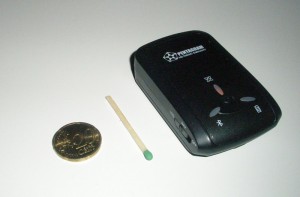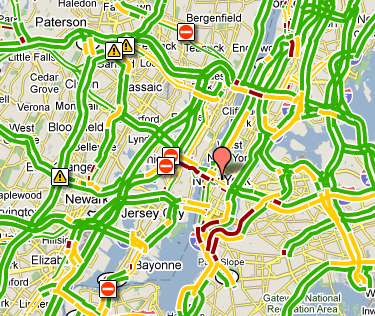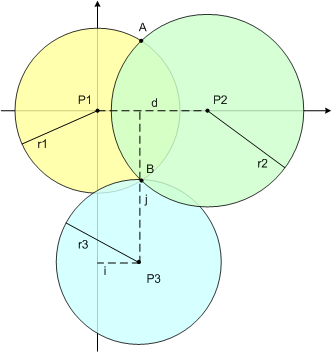I think we’ve all been there before. You have this vehicle that you just wish that you could track. You might be a business owner, or a concerned parent, or a victim of grand theft auto. It doesn’t matter. Whatever your reasoning, GPS vehicle tracking is something that is accessible to individuals at all levels of technological familiarity. Anyone can track a vehicle if they are equipped with a little understanding and the right hardware for the job.
What we hope to do here with this post is give anyone all the knowledge they need use a GPS tracking system for their vehicle. We will go step by step through the whole process and by the end any person should be able to understand what this powerful technology allows them to accomplish as well as some steps for them to take to get their car, van, or truck tracked with GPS.
What Is GPS Vehicle Tracking?
Its always good to start at the very beginning. I hear its a very good place to start. When we begin, we start with GPS. This acronym stands for the Global Positioning System. It is a constellation (fancy word for group) of satellites operated by the United States Air Force. These satellites float around in outer space beaming a special signal down to earth. These signals are used by a whole bunch of devices and can be heard using a special receiver, or chip.
This GPS tracking chip will “hear” the signal and learn several different things from it. The most important things that it is going to learn is the satellite that sent the signal and how long ago it sent the signal. The GPS chip will then do some fancy math and determine where on earth it could be in relation to that one satellite.

Now I want you to imagine that you are a man floating out in space looking down on the earth. You have the black expanse of space ominously looming behind you as you gaze at that beautiful blue ball that we call home. Looking down (you have super eyesight) you notice some interesting things about points on the earth in relation to yourself. First, there is one point just below that is the closest point on the earth to you. The second thing is that all the points that are not right below you have other points that share their distance with that point. All the points that share the same distance from you can be connected together and they will make an “o” (circle) shape on the ground. Having more than one point as the distance from you is the norm when looking down on the earth from space.
Now back to our GPS vehicle tracking – specifically our understanding of how many satellites are needed for a tracking chip to know where it is in the world. Just one satellite message is probably not going to give you your exact location. Unless you are directly under a satellite (only around 32 points on earth exists just like this) your GPS chip is going to need to get some help from other satellites to determine where it is. The magic number is 4 total satellites are needed to get a really solid position.
What has been described above is the standard way all GPS devices work. They all require access to the signals from these satellites to figure out its position. If it cannot get these signals (i.e. it is in a cave, an underground parking structure, at the bottom of a lake, river, or ocean, or it is being jammed by a GPS blocker) then it will not be able to be tracked. This is important for those thinking about how they want to use their vehicle tracking device.
The next thing that we should understand about any tracking system is that is needs a way to communicate the location information that the tracking chip calculates to you, the person who is using the vehicle tracker. This is something that standard GPS devices simply do not do. For example, you cannot take your standard GPS navigation device, say a Garmin nüvi 265WT, stick it in a car, and expect to be able to track it. It just doesn’t work that way because these devices have no way to communicate information to people outside the vehicle they are in.
Instead, you are going to need a device that is specifically made for tracking purposes. Car tracking devices generally have both a GPS chip built into it as well as some sort of communication hardware. In most cases this is going to be a cell phone modem for communication over the wireless networks that paint themselves across America, but there are a few instances where the tracker could communicate via commercial communication satellites. Chances are though any tracker you are going to use will use a cell phone network, so we will focus on how that works.
Your vehicle tracking system will now take the information that the tracking chip has calculated and send this out over the cell phone network much like a person would send a text message (SMS) or email. This data is sent from the device to the tracking provider. The tracking provider will make this information available to their users – in this case you and whomever you decide to share it with – through a clean web interface that will either be Google Maps or at least closely resemble it.
That, in a nutshell, is what GPS vehicle tracking is – it is the seamless combination of GPS location technology and wireless communication technology into one powerful device.
GPS Vehicle Tracking Devices
There are many different devices out there from a wide range of manufacturers and distributors. We cannot go through each of them and talk about the different vehicle tracking devices that they offer and how you can use them. That would take up too much time and would probably be pretty boring to read. Instead, what we want to do here is briefly describe the two main categories of devices and discuss some of the various pros and cons for each of them. The two types of GPS vehicle trackers out there are built-in device and standalone device.
Built-in GPS Vehicle Tracking Devices
These are the most commonly used devices for fleet vehicle tracking. Being built in to the vehicle gives them extreme flexibility and power, enabling almost constant tracking for vital performance metrics for businesses. Also, by being well tied into the internal workings of the vehicle also has its advantages. For example, some GPS vehicle trackers allow remote control of certain functions of the car.
Is your driver idling the car for too long at a service call? Simply cut his engine for him! Did your delivery person accidentally lock the keys in the ignition of the delivery van? Unlock the doors remotely for her! You can many of these things with fleet tracking devices built specifically for the purpose. And these features are not just limited to commercial applications, many consumer oriented trackers also offer these feature to their customers as well.
Most built in trackers do require a professional install since theses devices do become integral part of the vehicles electrical and computer systems. Some trackers just plug into a special port under the steering wheel (called an OBD-II port) and don’t require any special attention from a professional installer, which means that you can install it yourself once you get the piece of equipment in the mail.
I did want to clear up on point of possible confusion before going on to talk about standalone trackers. By using the phrasse “built-in” I might have given the wrong impression. I do not necessarily mean something like OnStar. It does not have to be built into the car when it is made or even shortly after it is made. It just needs to get its power from the vehicle. Another phrase I could have used was hard-wired.
Other possible applications:
- Teen driver tracking
- Theft recovery
- Catching a cheater
- Business mileage calculator
Standalone GPS Vehicle Tracking Devices
Standalone trackers are usually versatile GPS tracking devices that are not necessarily bound to a single function. Take the Zoombak line of products. There are two main trackers that they sell. The Advanced GPS Car & Family Locator and the Advanced GPS Universal Locator. These devices are essentially the same, the only difference being the branding that they’ve done. This is pretty much going to be the standard for all portable, standalone trackers.
One thing that you have to be aware of is that standalone trackers cannot really compete with the built-in vehicle tracking systems because they are not set up for real time GPS tracking in the same way. While a built in tracker can produce an avalanche of data and never run out of batteries a standalone tracker can only track as long as the battery has a charge. The Zoombak can give 150 locates before it runs out of battery. This is a pitiful number when compared with fleet tracking devices.
But what they lack in longevity these devices make up in versatility. A built in car tracker isn’t going to be much good once you take it out of the car. In fact, you can’t really take it out of the car to be used on your teenage daughter as she goes through Central Park. Devices like the Zoombak provide comprehensive tracking support for most personal tracking needs.
Another feature of the portable trackers is that they are often easily concealable. If you are trying to track a vehicle incognito then something small is definitely going to be what you want to go with. While it still isn’t the very best money can buy for this type of application, you will still get a lot of bang for you buck.
Other possible applications:
- Most non-vehicle GPS tracking functions, including:
- Sport tracking
- Pet tracking
- Child tracking
- Covert tracking of cars
The Cell Phone As Vehicle Tracker
 A word here needs to be said about the ubiquitous cell phone. Did you know that these devices are the most common GPS trackers on the planet? They can easily be utilized to become full fledged vehicle trackers. Even if you don’t have a cell phone to spare you can install some sweet (and free) cell phone tracking software for your phone. If you are looking for a good program for your phone then you should check our list: free GPS cell phone trackers.
A word here needs to be said about the ubiquitous cell phone. Did you know that these devices are the most common GPS trackers on the planet? They can easily be utilized to become full fledged vehicle trackers. Even if you don’t have a cell phone to spare you can install some sweet (and free) cell phone tracking software for your phone. If you are looking for a good program for your phone then you should check our list: free GPS cell phone trackers.
Do I Need A Vehicle Tracking System?
Now that you have gotten a little bit more information about the devices that are going to make up your vehicle tracking system you have a decision to make. Is GPS vehicle tracking something that you actually need? The costs associated with this type of real time tracking is certainly not cheap. The cheaper devices start at around $100 and they only go up from there. Then there is the monthly subscription fee that all tracking providers require to operate correctly. In the first year alone you can reasonably expect to spend around $500.
Businesses obviously have the most to gain by implementing these devices as part of a fleet management system. Private individuals may save some money on insurance premiums by having a tracker, but the real offset is the value that you receive from having one of these devices. Is it enough to justify purchasing a vehicle tracker?

 Well, there are a couple different things that this Internet giant could by trying to accomplish by using cell phones to track cars and get accurate traffic information. The first is the most obvious: they want to improve their current product and services. Google Maps is a wildly popular web application and is becoming just as popular on mobile phones. If they can increase this application’s usefulness they can solidify their user base and create lots of Google Maps evangelists. This could cut into the market share of other online map providers like MapQuest and MSN.
Well, there are a couple different things that this Internet giant could by trying to accomplish by using cell phones to track cars and get accurate traffic information. The first is the most obvious: they want to improve their current product and services. Google Maps is a wildly popular web application and is becoming just as popular on mobile phones. If they can increase this application’s usefulness they can solidify their user base and create lots of Google Maps evangelists. This could cut into the market share of other online map providers like MapQuest and MSN. Once a GPS device has received enough of these signals (3 signals from 3 different satellites) it is then able to calculate its position using a process called trilateration. What it does is it takes the know location of three or more objects, in this case the GPS satellites, and uses the known distance from these locations, which is calculated by taking the amount of time between when the GPS signal was transmitted and when it was “heard” by the GPS tracking device and then multiplying that time by the speed of the radiowave, to find out exactly where the GPS device you are holding is. It is a little complicated when talked about this way, but it is actually quiet easy to understand when properly explained.
Once a GPS device has received enough of these signals (3 signals from 3 different satellites) it is then able to calculate its position using a process called trilateration. What it does is it takes the know location of three or more objects, in this case the GPS satellites, and uses the known distance from these locations, which is calculated by taking the amount of time between when the GPS signal was transmitted and when it was “heard” by the GPS tracking device and then multiplying that time by the speed of the radiowave, to find out exactly where the GPS device you are holding is. It is a little complicated when talked about this way, but it is actually quiet easy to understand when properly explained.